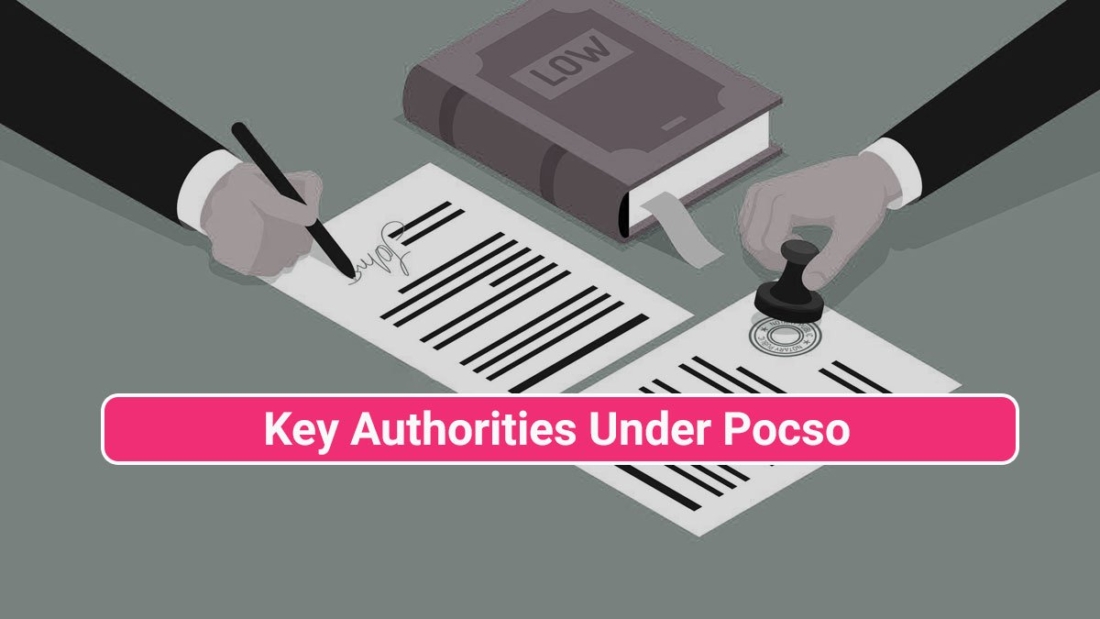One of the primary pieces of legislation governing instances of child sexual abuse is the Protection of Children from Sexual Offences Act, 2012 (“POCSO Act”) and the Protection of Children from Sexual Offences Rules, 2020 (“POCSO Rules”). The Act is gender-neutral and defines a child as someone who is below the age of 18 years. As per Section 19 of the Act, cases of sexual abuse against children must be mandatorily reported, even those which are merely a speculation. Additionally, since Section 34(1) of the POCSO Act requires children committing offences under the said act to be governed by the Juvenile Justice (Care and Protection of Children) Act (“JJ Act”) as well, the authorities are to function according to the requirements of this act, too.
The various authorities under the Act are as below –
1. Local Police/Special Juvenile Police Unit (“SJPU”) – The POCSO Act mandates the police officers to carry out their procedures in a child-friendly manner upon receiving and while dealing with cases of child sexual abuse.
- Recording Statements – The statements should be recorded at a place where the child is most comfortable, and if possible, by a woman officer. The same shall be done in the presence of the victim’s parents (unless they are accused of the abuse) or an adult whom the child trusts. The police officer also needs to ensure that the child does not meet the accused during this process.
- Assessing the Child – In case the child is found to be in need of care and protection, necessary arrangements should be made. If and when the medical needs are assessed, the child, if needed, should be admitted to a nearby hospital for examination (within 24 hours of receiving the report).
- Recording of Statement by Magistrate – The Magistrate, under Section 25 of the POCSO Act is required to record statements of the child victim which are made under Section 164 of the Code of Criminal Procedure, 1973 (recording of confessions and statements). He also needs to submit a copy of the document or final report by the police to the child/parents/representative.
- Reporting to Special Court and Child Welfare Committee – the SJPU/police shall inform the Child Welfare Committee (“CWC”) and Special Court about the complaints within 24 hours. In the absence of a Special Court, the same shall be notified to the Session’s Court as per Section 19(6) of the POCSO Act. Keep the child and the informant abreast of important details concerning the case.
2. Child Welfare Committee – As per Section 30 of the JJ Act, 2015, the primary role of these committees is to provide necessary care and protection to child victims of sexual abuse.
- As per Rule 4(5) of POCSO Rules, the CWC will determine within 3 days of the receipt of the complaint from the SJPU/Local Police whether or not the child victim is to be relocated to a children’s home away from his family/household.
- Assess whether the child victim is in need of care and protection.
- Under Rule 4(8) of POCSO Rules, the CWC might appoint a Support Person if the victim requires assistance during investigation and trial.
3. District Child Protection Unit (“DCPU”) –The functions of the DCPU, among others, includes arranging counselling sessions, maintaining reports, maintaining a list of monitoring authorities, periodic mapping of child related services, facilitating restoration of children to their respective families, maintaining databases of various institutions and children, maintaining lists of interpreters/special educators/translators etc and making it available to authorities, conducting awareness programs, organising meetings, submitting monthly reports to State Child Protection Society, etc. The District Child Protection Officer shall be the Nodal Officer in the district.
4. Special Court/Judge – As per Section 33 of the POCSO Act, the Special Court shall create a child-friendly atmosphere, permit frequent breaks for the child, ensure as little calling of the child to testify as possible, not allow aggressive methods of questioning, ensure that the identity of the child is not disclosed, direct payment of compensation, etc.
5. Special Public Prosecutor – Every Special Court shall appoint a Special Public Prosecutor (“SPP”) under Section 32(1) of the POCSO Act. The SPP has to assist the court in conducting the trial fairly.
6. Support Person – People or organisations that support the victim through and through i.e., during the proceedings and also after by ensuring rehabilitation and well-being of the victim.
7. National Commission for Protection of Child Rights/ State Commission for Protection of Child Rights (“NCPCR”)/(“SCPCR”) – Ensure proper implementation of the Act at all levels, ask CWCs to submit their reports, and report the implementation of the Act in its Annual Report.
8. Juvenile Justice Board – All proceedings of the Juvenile Justice Board shall be held in-camera and abide by all other requirements as under the POCSO Act since by virtue of Section 34(1), the JJ Act, 2015 will be applicable to all children committing offences under POCSO Act.
– Sampoorna Chatterjee
 Cart is empty
Cart is empty 

